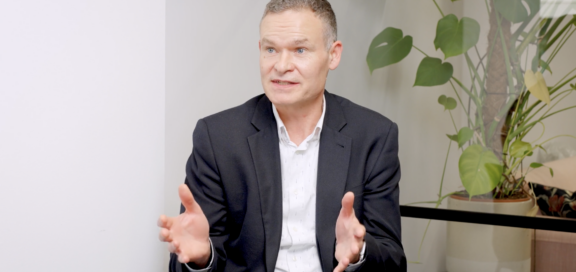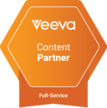
Podcast: What does a successful campaign look like?
About Podcast: What does a successful campaign look like?
Dice’s Managing Director; Matthew Dickinson and Creative Director; Rob Wilson explore what makes a successful pharmaceutical marketing campaign and how strategic choices can drive impactful results.
This episode considers the importance of storytelling, audience engagement, and the critical role of a well-defined call to action. Through their discussion, they emphasise the need to solve real business problems, the value of early involvement in campaign planning, and how integrating creative strategies can lead to memorable and effective campaigns in the healthcare industry.
Transcript
Hi, my name’s Matthew Dickinson. I’m the managing director of Dice Medical Communications, and today I’m chatting with my top colleague, Rob Wilson, our creative director here at Dice. Today we’re going to talk a little bit about what makes a successful pharmaceutical marketing campaign. Welcome, Rob.
Thank you, Matthew. Good to see you.
Shall I introduce myself? Why not? Absolutely.
My name’s Rob Wilson, and I’m creative director at Dice.
So Rob, talk to me a little bit about the attributes of a successful campaign in pharmaceuticals, do you think?
Sure, Matthew. The attributes for me, for a good campaign is to tell a good story. Make it relatable and really make it memorable. It must be original, know your audience. I think that’s really important, a memorable hook. And know your brand. Brand awareness is really important, and above all, have a really good, relatable call to action.
Yeah. Call to action, I think gets easily missed in our industry, far too often, and in the omnichannel setting. It blows my mind how little people think about linking everything together.
So that’s really interesting. I like those attributes. We constantly remind our clients to have a good call to action, don’t we?
Absolutely. Absolutely.
Let’s talk a little bit about the work we do at Dice from a standpoint of making a campaign a success. For me, the way I would always argue we do a good job, and why clients should come to us is the fact that we are quite focused on the challenge rather than the media that the challenge comes with. One of my proudest things about the business growth has been the fact that the range of work we do now is so much bigger.
And I think from my standpoint, and I know, you know, I’d be interested to know your thoughts, but from my standpoint, when clients, when we can articulate a problem and we solve the problem, rather than we just do a solution, you know, so the client says to us, let’s do a video, well, why, or let’s do this thing. Well, why are we doing that thing? Is the campaign that we’re going to do going to solve the problem?
How we do it is kind of up to what works best. Do you know what I mean? So I think the thing I would add to all of your points is can we make sure that the media we’re using and the channels and the omnichannel work that we do, does it solve the problem we’re trying to solve? And it’s not just there for the sake of it. From my previous work outside of pharma, I could count on a million times when we did things that were done because it was a new and sexy thing to do rather than solving a problem, you know? Does a pharma company need a Twitter account? No. Unless there’s a Twitter account that would solve a particular problem, that’s something that’s very important.
And I guess that’s the relationship with our clients, getting inside their heads, working with them on the brief and deciding whether is that really what they want? Yeah. And exploring the bigger picture, Well articulate the problem, I guess. Exactly. All great campaigns that we work on in healthcare solve problems. And it’s very easy for people to say, well, does it sell X drug? You know, that’s not the problem. The problem is overcoming the perception that a new therapy in an established area is needed. Or how do you overcome that perception that it’s not, or how do you raise awareness that there is indeed a treatment for a condition that’s long been diagnosed, but unaware that there was a role for it or indeed the market access component. So that’s kind of a big thing about what we can do.
I think if we talk about success, so all of those points, let’s assume that we’ve done that. When you wrap up on a Friday and we go and have a beer and we talk about our week and what success looks like. In your experience as a creative director, what are those campaigns that you look on and you go, what, what gives you the feeling of success without going into specifics about certain campaigns? You know, what makes you happy about the end of a week when you’ve delivered something?
I think it’s how the week’s been. If you’ve been just churning out work for the sake of it and having no emotional attachment, then it hasn’t been an exciting week. Getting excited about the work you do is really important, and if you are excited about it, clients are going to be excited about it. And it’s a generally good sign that the campaign is touching the right points.
Yeah. So, Rob, one of the things that I’m passionate beyond belief on is measurement and working out where things are going right. Where things could be improved upon. How do we iterate, in your opinion, what are the two or three things that you wish perhaps you got more feedback on? Because I’ve got a couple, I’ll give you one example. The simple business metrics that our clients are operating under. I wish we were told more about how we’re delivering against those is one example, but are there any metrics that you wish you, or, or metrics you wish you got, but or examples of metrics when you got them, it was really valuable for you to understand the effectiveness of the campaign.
Yeah, I think feedback from the field is really crucial. How that information and materials are going down with HCPs. That feedback, is it engaging enough? Is it too long? Is it too short? We know we, What are they using? Exactly. All that feedback is crucial. As we know, playing too many videos in front of HCPs is a no-no. How can we make those videos shorter, more engaging? Yeah, just that general feedback from the field.
It’s kind of an opportunity, isn’t it? These days of content, there’s so much more content available, which is great, like we do in our normal lives, you know, look how much content is out there. But if you think about the ability to really analyse well, what is being engaged and what isn’t, you know, we can all have a hypothesis as to, well, this bit of content we think will do really well, but guess what, you know, we look on these podcasts, you know, which content is engaging with people, what are people watching? You know, you learn from that and you iterate, and you think about topics that are of interest to people. So I wish we got more feedback on that, to be honest. And we ask for it all the time, but it would be nice if we got even more, I guess.
Absolutely what’s engaging to you, to me, completely different. Whereas in the field, it’s interesting to know that, why aren’t they using half the sales aid? And just picking on a few slides. Exactly. So, very important.
Yes. So Rob, when a client of ours comes to us and says, I need help with this, say a launch of a new therapy, what are the things you most like to have happen in that scenario? How do you set us up for success from your role? And maybe I’ll talk a little bit about how I do from my side of things, from a management side of things.
Sure. For me, it is getting involved at such an early stage, talking to the clients, working with them, getting on the same level as them, understanding their business, just really talking to them even prior to writing a brief finding out that much about their business, what they want to achieve. It’s really important to have that rapport before we even start, to understand their business.
Yes. I agree with that. I think articulating the problem is the thing I keep going back to all the time. You hate it when an account person like me would come to you with a solution that’s not a brief. My brief is to say, here’s our problem. We need to overcome it. Let’s go and find a solution. I think that’s the biggest thing for me is, let’s articulate the business problem or the marketing problem or the communications problem we’ve got, and then go and solve it. Absolutely. That’s key to me. It’s important to get the right solution as well because it’s down to us that if there’s a 180 turn halfway through the project, because we haven’t got the brief right in the first place, it’s very frustrating for everyone. So it’s up to us. The onus is on us as well as our clients to solve that, before we even start coming up with any solutions.
And I think in this era of omnichannel planning and, and content delivery, which we are passionate believers in and executing all the time, I think that the real importance for me is if you’ve articulated your problem and you, you have, maybe you have different people, for example, you might have people who are focused on the Congress versus focused on, the infield team or the medical education platform that you’ve built. All of those need to talk together, and they all need to be analysed and, and kind of KPIs against, did this work deliver against this problem? Are we overcoming this problem? How are we achieving this? What are our smart objectives? Are we achieving those? Are we building a business that’s growing, based on the challenges we’ve set out? And I think if we can encourage our clients to do that even more, the better it can be. And I think from our standpoint, we’re always looking to iterate and do better. That’s why it’s such a pivotal pillar in our four stage process.
So yes, I think I agree completely. It’s being involved early, but also being able to articulate upfront, well, what are we trying to solve? What are we trying to solve? And then everything can be measured against that, everything. Happy days.
So as part of the creative team, I guess, Rob, I, I always think it’s dangerous to think of a creative team and an account management team as two separate things whilst their functions are slightly different. But if you think about our business with other experienced PhD level writers and videographers and designers and developers and your role and my role, et cetera, et cetera. I think the thing that I want to know a little bit from your side is how do we deliver sort of on, you know, your involvement in a strategy development, for example, you know, for me, I see such huge value in, for clients when they involve the whole of our team in the strategy stage, right? The way through to the insight generation phase, you know, so when we’re gathering insights, you need to be involved. When we are building a strategy, you need to be involved. And then when we execute, you’ve already got this wealth of knowledge before you get to that stage. Would you agree in that regard? I mean, talk to me a little bit about your relationships with clients and how that is so important.
Absolutely. I mean, you touched on it then. We have writers with PhDs, we have account services, we have creative video content developers, and so much breadth and depth of talent in our agency. And, you know, it could be thought that we work in silos, but working together is so important. And I want our clients to see that we’re working as a team. They see us as seamless, as one agency with lots of different assets available to them. But working with everyone at that initial stage where we’re brainstorming people because the people in the agency come up with so many different ideas. It’s not just creatives. There are many different right-side brain, left-side brain people coming up with all kinds of different ideas. So it’s important to integrate them at an early stage. Absolutely.
And I think, you know, I would ask our clients, get to know Rob more, pick up the phone to Rob and have a conversation with you, talk about, I’ve got a thought about something, what are your thoughts on how we execute this? Or I’ve seen this done over here, could we do something similar? I’d love for them to be more engaged. Absolutely. And you’re open to that, right? Absolutely. No one’s off-limits at Dice, right? Anyone is available at any point in time. If they’ve got questions or we’ve got ideas to share across PO8, then absolutely. Pick up the phone.
They shall. Well, thank you very much, Rob, for that conversation. It was really good. We’re going to chat in a subsequent episode of our podcast, which may come out before this, or it may come out after this, with a bit of a round table around a couple of topics, particularly to do with partnerships. We’ll elaborate a little further I think, in the future on the partnerships between different people in our organisation and our clients themselves. So thank you again and good to chat.






